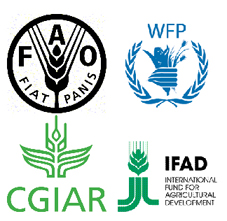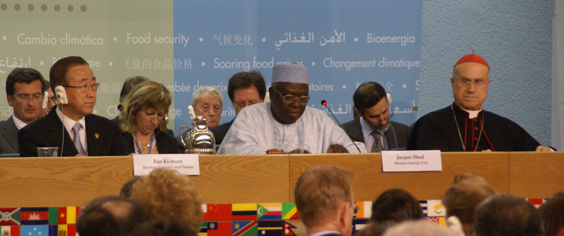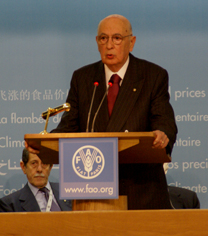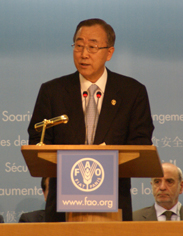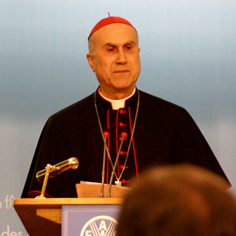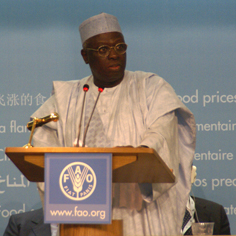Daily highlights: |
Opening plenary |
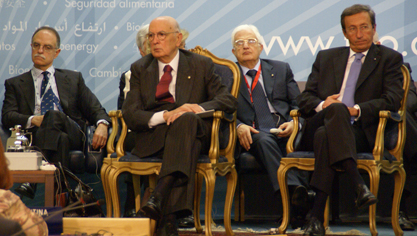 |
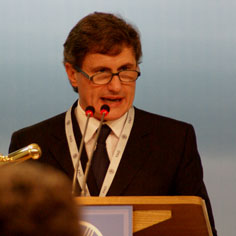 |
|
Giorgio Napolitano, President of Italy (center) |
Gianni Alemanno, Mayor of Rome |
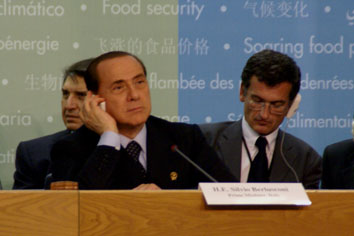 |
| Silvio Berlusconi, Prime Minister of Italy |
| HIGH-LEVEL SEGMENT Statements by Heads of Delegation |
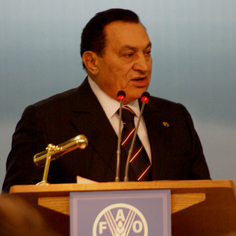 |
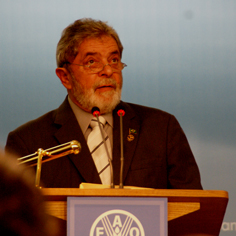 |
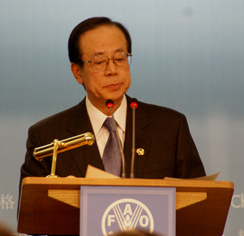 |
||
| Muhammad Hosni Mubarak, President of Egypt, advocated a broad-based network of social solidarity, and an international code of conduct which rejects biofuel subsidies. | Luiz Inácio Lula da Silva, President of Brazil, supported sustainable biofuel production, attributing the current food crisis to high oil prices and protectionist agricultural subsidies. | Yasuo Fukuda, Prime Minister of Japan, announced US$100 million in emergency food aid, to be dispersed by July. |
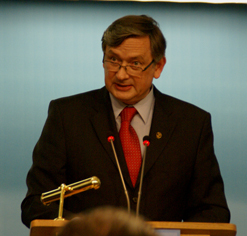 |
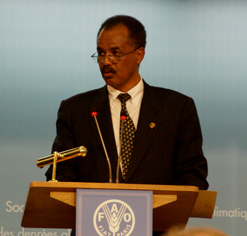 |
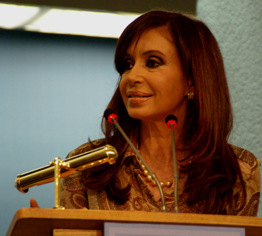 |
||
| Danilo Türk, President of Slovenia, said climate change adaptation should be integrated with food security and poverty reduction strategies. | Isaias Afwerki, President of Eritrea, said it is "morally reprehensible" to leave those who are already deprived of other necessities of life to fend for themselves. |
Cristina Fernández de Kirchner, President of Argentina, said the current food crisis is a problem of food production as well as of food distribution and access. |
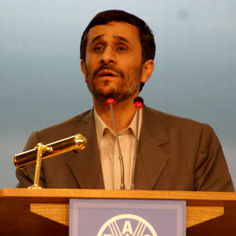 |
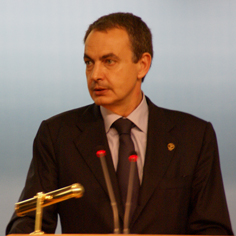 |
|
| Mahmoud Ahmadinejad, President of the Islamic Republic of Iran, expressed concern over the position of some developed countries in international relations, including trade negotiations. | José Luis Rodríguez Zapatero, Prime Minister of Spain, drew attention to those who face sacrifice, hunger or even death due to the food crisis, especially children. |
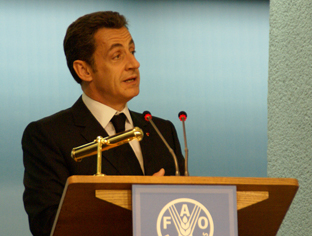 |
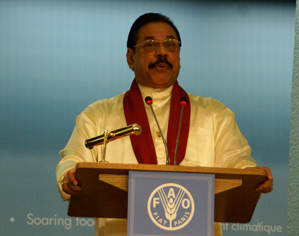 |
|
| Nicolas Sarkozy, President of France, said the neglect of focus on agricultural production in developing countries is a historical strategic error, and suggested establishing an international expert panel on food and agriculture. |
Mahinda Rajapakse, President of Sri Lanka, called for a global mechanism to reduce fluctuations in food production. |
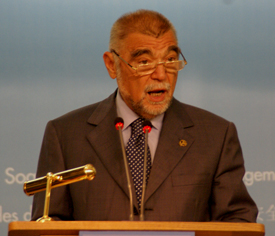 |
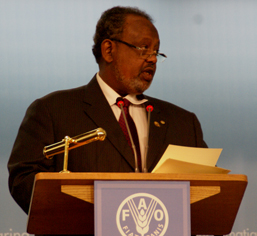 |
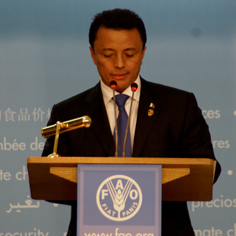 |
||
| Stjepan Mesíc, President of Croatia |
Ismaël Omar Guelleh President of Djibouti |
Marc Ravalomanana, President of Madagascar |
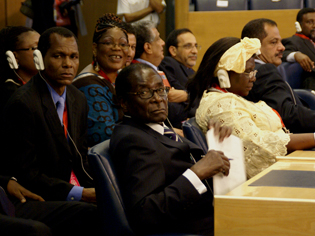 |
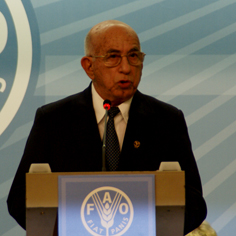 |
|
| Robert Gabriel Mugabe, President of Zimbabwe | José Ramón Machado Ventura, Vice President of Cuba |
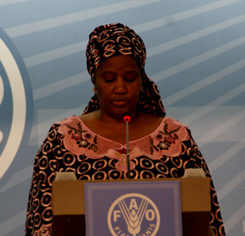 |
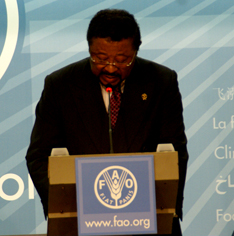 |
|
| Phumzile Mlambo-Ngcuka, Deputy President of South Africa |
Jean Ping, Chair of the African Union Commission |
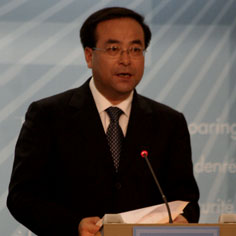 |
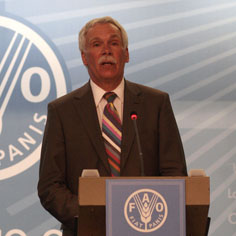 |
|
| Zhengcai Sun, Minister for Agriculture of China | Ed Schafer, Secretary of Agriculture, United States |
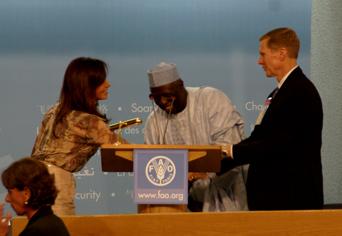 |
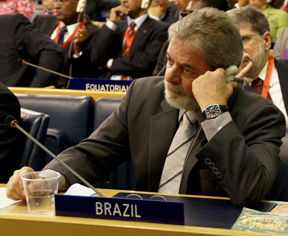 |
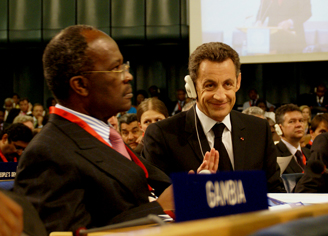 |
| COMMITTEE OF THE WHOLE Henri Djombo, Minister of Forestry and Environment of the Congo, acting on behalf of COW Chair Denis Soussa N'Guesso, opened the session. James Butler, FAO Deputy Director-General, asked participants to act “boldly, quickly, fairly,” and to commit to urgent action in light of the challenges facing food security. The Chair asked that the final declaration be substantive and that it reflect the need to develop biofuels and provide a response to climate change challenges. He stressed that the whole world has high expectations for this process. The Co-Chairs of the Informal Open-Ended Working Group explained the drafting process, and urged delegates to continue moving forward in a spirit of cooperation towards finding consensus on the declaration. Participants focused primarily on procedural issues for working through the document, although some substantive discussion occurred. ARGENTINA expressed concern that only some of the causes of the food crisis were named, and suggested that it would be more useful to describe the causes in general terms and to focus on solutions. BRAZIL suggested including a reference to water resources. The procedural suggestions included convening a Friends of the Chair group, moving through the bracketed text in the COW, and re-convening the Informal Open-Ended Working Group. Delegates agreed on the latter option. |
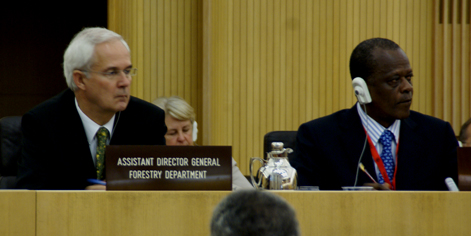 |
 |
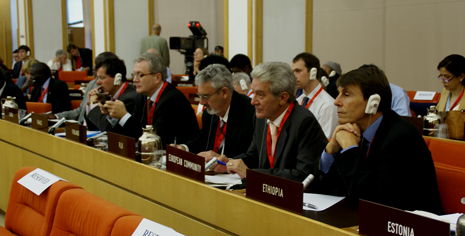 |
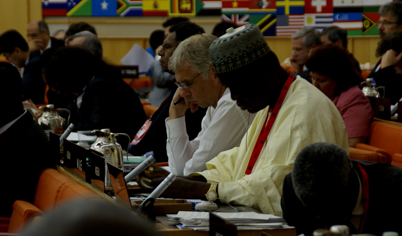 |
| SIDE EVENTS Private Sector Forum |
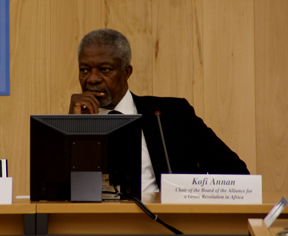 |
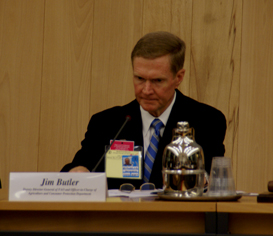 |
|
| Kofi Annan, Chair of the Board of the Alliance for a Green Revolution in Africa |
James Butler, FAO Deputy Director-General |
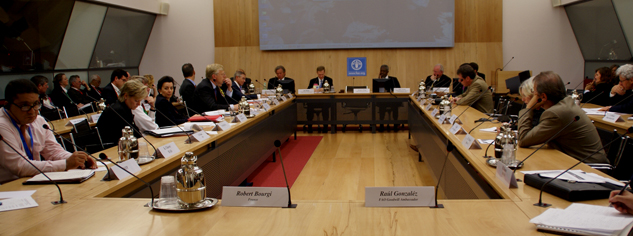 |
| Civil Society and Non-Governmental Organizations Forum |
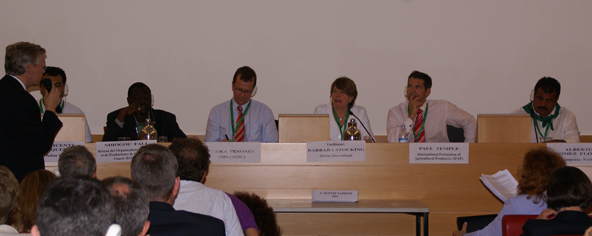 |
Daily highlights: |
Related Links |
|
|
||
|
|
